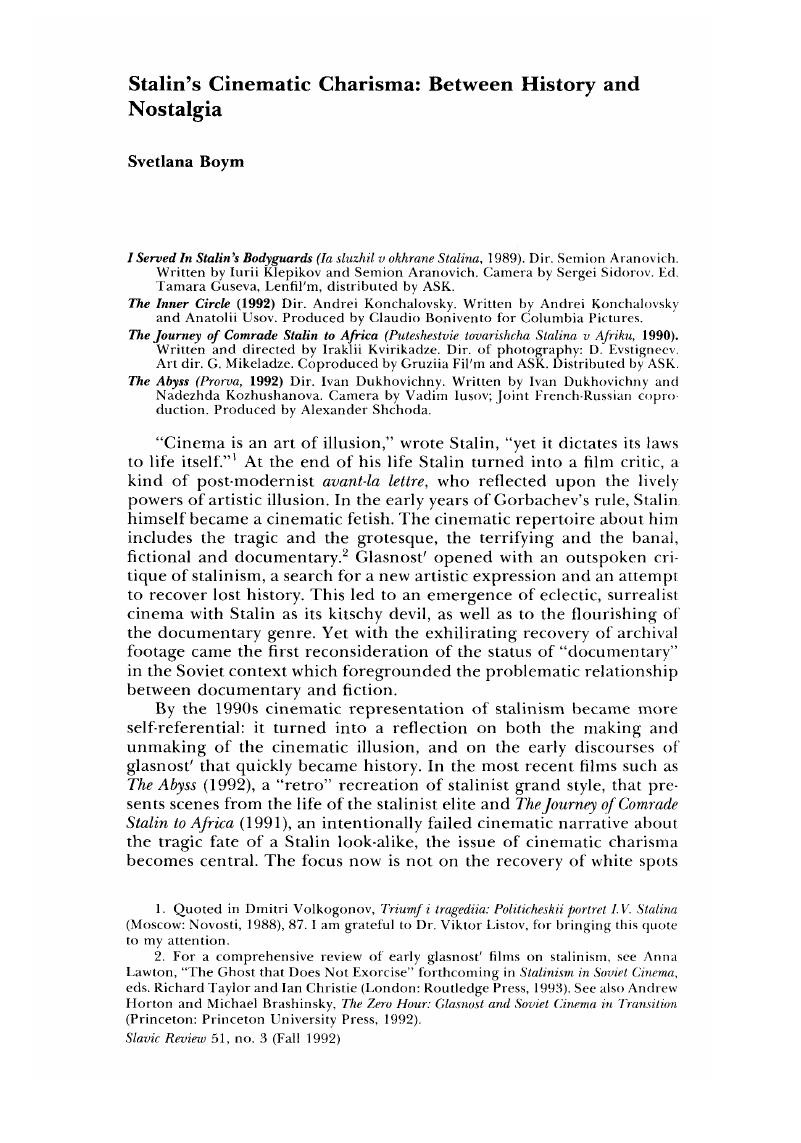Article contents
Stalin's Cinematic Charisma: Between History and Nostalgia
Published online by Cambridge University Press: 27 January 2017
Abstract

- Type
- Review Articles
- Information
- Copyright
- Copyright © Association for Slavic, East European, and Eurasian Studies. 1992
References
1. Quoted in Volkogonov, Dmitri, Triumf i tragediia: Politicheskii portret J.V. Stalina (Moscow: Novosti, 1988), 87 Google Scholar. I am grateful to Dr. Viktor Listov, for bringing this quote to my attention.
2. For a comprehensive review of early glasnost’ films on Stalinism, see Lawton, Anna, “The Ghost that Does Not Exorcise” forthcoming in Stalinism in Soviet Cinema, eds. Taylor, Richard and Christie, Ian (London: Routledge Press, 1993)Google Scholar. See also Horton, Andrew and Brashinsky, Michael, The Zero Hour: Glasnost and Soviet Cinema in ‘Transition (Princeton: Princeton University Press, 1992 Google Scholar.
3. The concept of “totalitarianism” has been sufficiently criticized in American and western European sociology. Yet the term acquired a new currency in Russia and eastern and central Europe as demonstrated by Kundera and recent Russian film criticism, and is frequently used by directors themselves. This is the context in which I use the term.
4. Wachtel, Andrew, “Incarnations of Clio in the Age of Pushkin,” in his An Obsession with History: Russian Writers Confront the Past (Stanford, forthcoming)Google Scholar.
5. Konchalovsky, Andrei, The Inner Circle, trans, and ed. Gambrell, Jamey (New York: Market Press), 138 Google Scholar.
6. Ibid., 137-38.
7. Ibid., 142.
8. Kundera, Milan, Unbearable Lightness of Being, trans. Heim, Michael (New York: Harper and Row, 1984), 250 Google Scholar.
- 4
- Cited by


